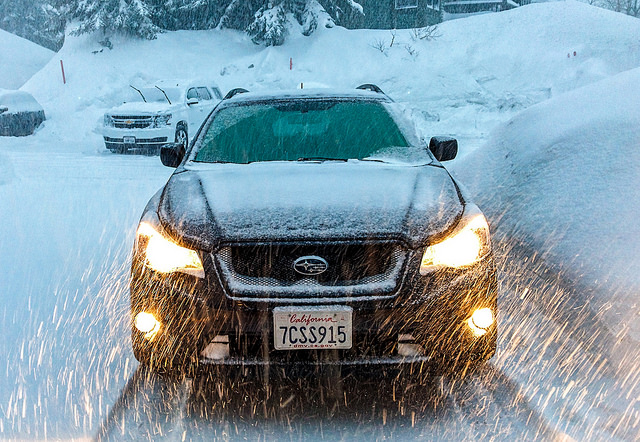With winter here and snow on the way, and knowing Michigan's reputation for brutal winters, it’s important for citizens of Michiganders to make sure their cars are prepared for winter driving. Just as people spend extra time layering on jackets and gloves and scarves, extra time needs to be taken to prepare cars for colder temperatures as well.
Since we can’t control the weather, and we really can’t control how other people drive in it and what winter car accidents may occur as a result, we need to be in control of how well taken care of our vehicles are. According to the National Highway Traffic Safety Administration, which conducted an analysis of critical reasons for motor vehicle accidents, problems related to the vehicle accounted for 44,000 accidents over the span of two years. While this may not seem like a lot when compared to accidents caused by human error, there are more preventative measures that can be taken when it comes to vehicle-related causes to make them avoidable. And while winterizing your car won’t necessarily keep drivers out of any automobile accidents over the coming the months, it can help to ensure that your car runs as smoothly as possible in colder temperatures.
Of those 44,000 accidents, tires and wheels, along with brakes, were the biggest culprits in causing car crashes. Steering, suspension, transmission, and engine-related problems all accounted for a smaller percentage of the automobile accidents. All of these car parts, regardless of how many car accidents they may cause, are aspects that driver’s should pay extra attention to as the winter season is nearly in full swing. DMV.org suggests the following tips for getting your vehicle ready for winter driving.
How To Get Your Car Ready For Winter
Coolant: It is especially important to have the correct antifreeze/water mixture to prevent fluid from freezing in your radiator. Consult your vehicle's owner's manual for information on this mixture. Pick up a tester at an auto parts store and make sure the fluid is filled to the maximum line.
Oil: Some mechanics recommend switching to a thinner oil if you live where temperatures drop below freezing. Your best bet is to consult your owner's manual or talk to your mechanic.
Wiper Fluid: Often overlooked, you'll need freeze-resistant wiper fluid to keep your windshield clean and your vision clear.
Inspect or Replace Your Tires: Low air pressure and worn tires are especially dangerous on wet or slick roads, as both can reduce traction
Snow Tires: Mounting the right tires on your car or truck can give you a huge advantage when trekking through snow. Many car makers and tire manufacturers recommend changing all four tires to snow tires in the winter. If you don't swap all four, the difference between snow and summer tires can cause other problems for your vehicle.
Cold Weather & Battery Capacity: It isn't only your engine that doesn't like to start in the winter. Your battery capacity is reduced by the cold weather, too. A thorough inspection of your battery, cables, terminals, and fluid will help you make sure your car is ready for the winter.
Pack an Emergency Kit: Items to include in your winter safety kit include a flashlight, blanket, leather gloves, hat, bag of kitty litter or sand, ice scraper and brush, small shovel, safe and leak-proof container of coolant, and snacks.
This list for winterizing a car is extensive and may seem a little overwhelming, but properly maintaining your car is a part of being a car owner, and is especially important in the winter months to help avoid getting into winter weather car accidents. While no amount of preparation can guarantee your car won’t break down or that you won't be involved in a motor vehicle collision, it can help prevent things that are easily avoidable. Winterize your car, take extra precautions when driving in winter weather conditions, and be prepared for a heavy holiday traffic this winter. It may not feel like it, but winter won’t last forever, and clear, sunny driving conditions will be back soon!
Winter driving is inherently more dangerous than driving during other times of the year. With snow, sleet, and ice already complicating driving over the next few months, the last thing drivers need is an easily preventable vehicle malfunction that makes them careen into a ditch or get into a motor vehicle accident. If you get injured in a car crash this winter, call The Michigan Law Firm, PLLC at 844.4MI.FIRM for a free consultation with an experienced auto accident attorney.


